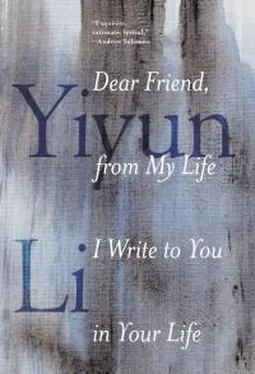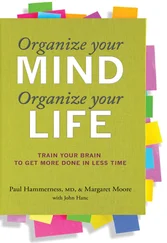It is preposterous for the writer or the reader to trespass, yet both sides often dismiss the border set by the characters: when a writer insists on his presence (on the page, between the lines) to dictate how his work is to be read; or when a reader reads without true curiosity about the characters, but with a goal of judging the writer.
I have read your article very attentively. It is rather difficult for an author to judge fairly a critical analysis of his own works—I must confess that I, for instance, find always the praise too great and the blame too weak. I do not attribute this impression to diffidence or modesty: it is perhaps one of the many disguises which self-love enjoys in.
—Turgenev to Henry James, on the latter’s review of Turgenev’s work
Diderot has said somewhere: “Avant sa mort l’homme suit plusieurs fois son propre convoi.” [“A man follows his own funeral procession several times before he dies.”] And now I have had to walk behind my own literary coffin.
—Turgenev to his brother, on his contemporaries’ attacks on
Virgin Soil
A successful writer, who lives in isolation, told me that for a decade he had written privately and entertained the idea of accumulating his life’s work in a drawer. At his death people would discover his genius, he imagined, but he would not be around to be responsible for his words.
Perhaps only an absolute kind of self-love justifies such a belief. Most of us don’t seek this extremity. Without life there would not be death. Is it bravery or cowardice that a writer consoles himself with this thought when he parades after his literary coffin?
Author of Chinese Origin Wins Big Prize in UK; Accused of Selling China to Court Biased Westerners
—news report, April 2015
It was the first real spring day after a long Midwestern winter. I was browsing news websites, both in English and in Chinese, in a sunny hotel lounge in Chicago. Returning to that city was like returning to one’s youth. When I first arrived in America, I had traveled there for an immunology conference. It was the week before Thanksgiving, and I stood on Michigan Avenue, watching Americans watching the parade, amazed that they would volunteer to attend such a festivity with unconcealed happiness. I had been to celebrations and parades in Tiananmen Square, too, though they had all been political assignments. Still, some memories bring a sense of loss for Beijing. The giant portraits—two stories high—along Chang’an Boulevard: Marx, Engels, Lenin, and Stalin, the first four foreigners’ names and faces every child in my generation had learned by heart. Nostalgia does not always align with politics.
I was thinking about noting that feeling in my journal when I clicked the link to the article about the Chinese writer, and was confronted by my own name and face.
The inevitability of a full circle: one writes to escape the omniscient voice that defines one, only to come to the same omniscient voice that takes the liberty to define one’s work as well as one’s self.
Perhaps the greatest pressure on the writer comes from the society within society: his political or religious group, even it may be his university or his employers. It does seem to me that one privilege he can claim, in common perhaps with his fellow human beings, but possibly with greater safety, is that of disloyalty….Disloyalty is our privilege. But it is a privilege you will never get society to recognize. All the more necessary that we who can be disloyal with impunity should keep that ideal alive.
—Graham Greene to Elizabeth Bowen
I am used to being seen by some Chinese—both in the West and in China—as a cultural traitor. Why can’t she write in Chinese? people ask; if she doesn’t write in Chinese, what right does she have to write about our country?
The collective feelings of a group are oftentimes more fragile than an individual’s feelings. I feel little remorse when a group of people, out of hurt feelings, accuse me of any sin. Writing, as long as it is one’s private freedom, will always be disloyalty.
The individual does not fight external enemies; it is with itself and its love that it fights it out, of its own accord.
—Kierkegaard,
Either/Or
Before I left Chicago my mother called and quoted the negativity in China, which had been reported to her by my sister. The thought then occurred to me that the news must have been seen by my husband, too, who visits the same Chinese news websites as I do. To know that my family would witness my name being abused: What are my obligations to them?
Writing is a confusing business. One’s inner clock, set to an exclusively private time, is bound only to what one writes. Life is lived in a different time zone. Caught in between is one’s family. To protect them from the internal clock, one risks alienating them; to include them, one risks intrusion.
I have so many stories to tell you. I think you should write a book about them yet you have no interest in them.
—My mother on the phone
I don’t think that’s what she wants.
—My father on the phone
Years ago, when I was defending a collection of essays as a thesis, a writer on the committee asked about my mother’s absence from the narrative. A mother is not always central to a story, I said; perhaps my mother is only a flat character. If that’s the case, he said, we would appreciate learning it. That she is a flat character? I said. No, that you think she is, he corrected me.
Not writing, like writing, can be disloyalty, too. If one turns away from the storytelling of one’s mother, is it worse than turning away from one’s motherland and mother tongue?
What’s interesting to me is writers’ drive to express themselves. Not all people have such desire.
—My husband
Is it really to express myself that I write? Not if I think about what it is in myself that needs to be expressed: hardly anything new. This tireless drive to write must have something to do with what cannot be told.
Stories I find difficult to tell: a year into college my mother quit school and moved to Beijing to be near her mother, who was to die within a year. Having broken the residency and education ruling, my mother did not receive a food ration, and my grandmother would starve herself until the end of her life for my mother.
Stories I refuse to tell: my mother’s either/or. Do you want a mad mother, she asked us all the time, or a dead mother? The assumption that no one wants a dead mother condones all behavior.
Stories I want to forget: my husband said that every phone call I made from the hospital started with a query about my mother. You have your children, he said, and she is not among them.
Something wonderful happened to me. I was transported into the seventh heaven. All the gods sat there in assembly. By special grace I was accorded the favour of a wish. “Will you,” said Mercury, “have youth, or beauty, or power, or a long life, or the prettiest girl, or any other of the many splendours we have in our chest of knick-knacks? So choose, but just one thing.” For a moment I was at a loss. Then I addressed myself to the gods as follows: “Esteemed contemporaries, I choose one thing: always to have the laughter on my side.” Not a single word did one god offer in answer; on the contrary they all began to laugh. From this I concluded that my prayer was fulfilled and that the gods knew how to express themselves with taste, for it would hardly have been fitting gravely to answer, “It has been granted you.”
—Kierkegaard,
Either/Or
The same day my mother reported the news from China, a high-school classmate, whom I had not had contact with for over twenty years, sent me an email and attached anonymous comments exchanged by our classmates. Having not been in touch with any of them for years, I was taken aback by the malevolence of the messages: jeering at a present person they don’t know, mixed with mocking the teenager I was. The man who sent me the email had once asked me to kiss him. Why? I had asked, being eighteen and having not the remotest inclination to do so. I forget what reason he gave me or how I declined, but the past, having passed, always comes back to claim what it has no right to. Worse than people who refuse to come into one’s stories are those who insist on taking a place.
Читать дальше












